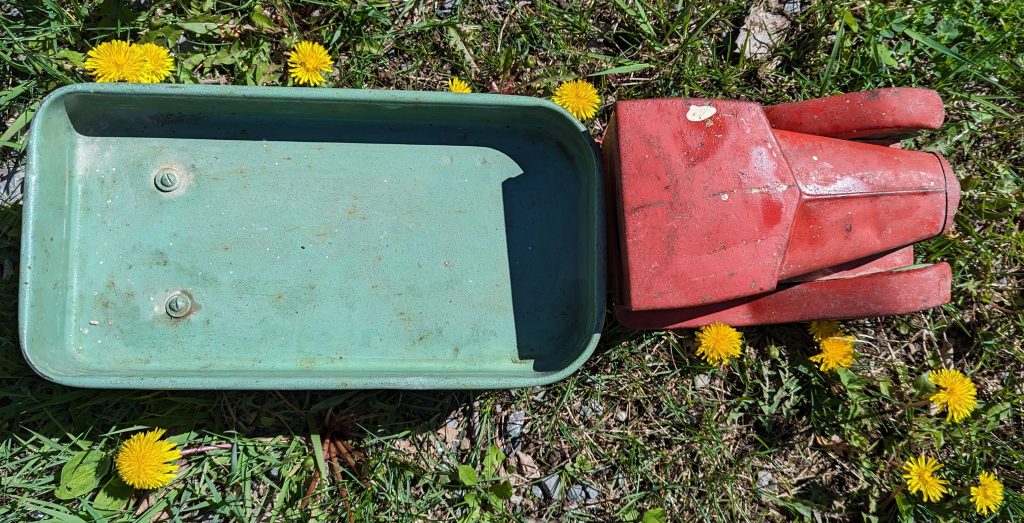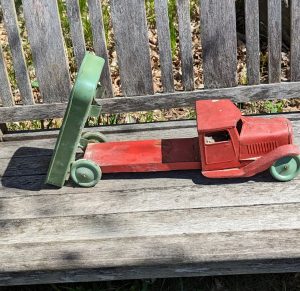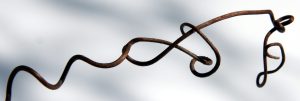Writing Memoir

So, like a forgotten fire, a childhood can always flare up again within us.
Gaston Bachelard
In my last post I wrote about one of my life-changing memories. Today I want to talk about the experience of revisiting memories in writing and to suggest that you might like to do this too.
First, here’s a snippet of another of one of my remembrances, a much smaller one than the first, and then I’ll follow this with some ideas for you to think about.
STEALING GRAVEL
It was late summer. I must have been four, and I was desperately bored. But then I remembered my father’s red and green dump truck from his childhood. He recently had brought this out for me to play with. Just two doors down my street I knew a spot where there was a fair pile of roadside gravel left over from a recent paving of our road. So, scuffing the toes of my brown oxford shoes, I stumped along, lugging the awkward truck until I reached the trove. So far as I knew, the roadside belonged to everyone. That’s what my father once had once said. I hunkered down and set to work filling the truck’s bed, moving the small stones from one pile to another. Somehow this felt like a good thing to be doing. And anyhow, it wasn’t as if I was taking the gravel, just usefully piling it.
Only, just when I was getting well involved in my work, from behind the hedge I heard a door slam, and a rusty, screechy kind of yelling. Friends with everyone, I looked up to show this approaching very old lady my excellent road work.
But to my dismay, she tottered up to me, shaking a dish towel furiously in my face. She yelled at me that I was stealing her gravel, her gravel, and she was going to call the police! Go on home, she raged, and never come back.
Shocked, hurt and confused, I hurried home. As often was the case, it seemed wiser not to bring this up with my parents, and although I never saw that neighbor lady again, from then on, I crossed to the far side of the street whenever I passed her driveway.
I want to suggest to you that playing with memory sketches could be a fine summer project. You might like to mine your life for some of its insights, gifts and lessons. There are so many ways that you might find exploring some of your memories insightful, and possibly fun, or at least consoling.
Start with a small reminiscence. This is your writing. You get to choose what to tell and who you want to hear your story. It’s your version. Try to ignore the judgemental voices in the background. Remember, while you are capturing this, the only person you have to listen to is you.
To help you get started, choose a topic. You are mining your life for its insights, epiphanies and lessons, even some that are bittersweet.
Think about milestones and turning points, times after which life would never be the same. Imagine yourself in a very specific time and place in your past.
- walking back to your old neighborhood.
- someone who made a difference in your childhood
- your childhood room
- the day you started school
- the time one of your pets died
- learning how to drive
- your first menstrual period
- an argument you lost
- a silly summer afternoon building a fort with your best friend.
- try using a prompt: “I never felt so embarrassed…”, “Why I hated weekends…”
To jog your memory, you might want to draw a memory map. One holiday weekend, my husband Barry and his best friend Umberto had a fine time drawing a map of the East York of their childhood, adding a ridiculous amount of detail.
Allow yourself to daydream about the sounds you heard, what you saw, the tastes and the textures, the smells of this time and place. After you bring it to life in your mind’s eye, begin writing.
**This is the time to set judgement aside and put down every single thought you recall. Only after you have gathered your material can you think about organizing it, making a point, considering whether you need to give more, or possibly pare things down.
Let it rest a few days and only then do your final revision. This pause is important. I think you will be surprised at what comes up for you while you let your writing rest. “Is this true?” Can you add a few details that would make it more true? “What about the rickety back steps?” “What did that kitchen smell like?” “How did it make you feel when he looked at you that way?” “What did you do about it?” Consider adding your own voice (“What I know now is that…” “I wish that I had…”)
Most of all, I think you will find that revisiting snippets of your life however rich or painful, with more experienced understanding is a wonderful gift.
**Please seek an experienced counsellor or therapist if you expect to revisit triggering memories.
A few recommended books
- Burghild Holzer, Nina. A Walk Between Heaven and Earth: A Personal Journal on Writing and the Creative Process
- Goldberg, Natalie. Old Friend From Far Away: The Practice of Writing Memoir
- Kazin, Alfred and Baker, Russell, et al. Inventing the Truth: The Art and Craft of Memoir
- Norton, Lisa Dale. Shimmering Images: A Handy Little Guide to Writing Memoir
- Tibergien, Susan M. One Year to a Writing Life
- Tibergien, Susan M. Writing Towards Wholeness: Lessons Inspired by C.G. Jung
- Zinsser, William. Writing to Learn: How to Write-And Think—Clearly About Any Subject At All
- Zinsser, William Inventing the Truth, The art and Craft of Memoir, rev and expanded, ed. Writing About Your Life: A Journey Into the Past

